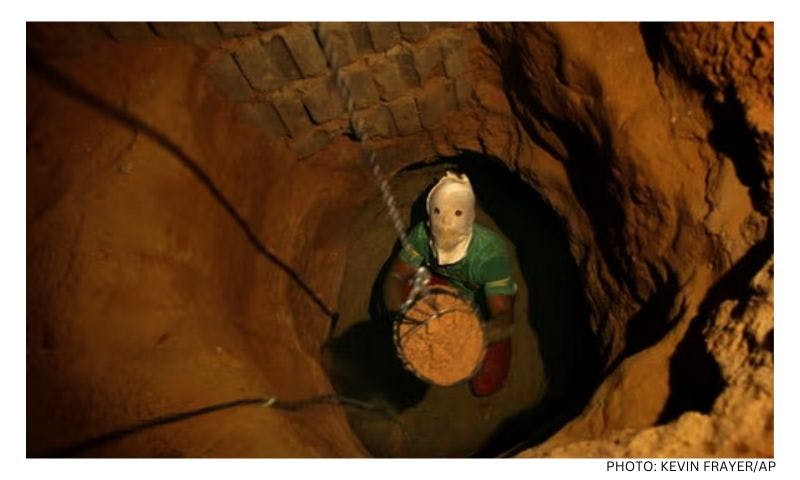Published: 20 February 2019
Last updated: 4 March 2024
The protests began as emblems of a divided country, demonstrating the economic chasm that lies between large, prosperous cities like Paris, and the country’s hinterlands, where people struggle to get by on their monthly paycheques.
The immediate response by city-dwellers who were not particularly affected by the fuel price rise to the protests was a certain sympathy amongst leftist “bobos” and more conservative voters alike, crystallising a widely-held scepticism that crossed ideological divides about President Macron and his business-friendly, liberal economic and social policies.
It echoed – and amplified – the reaction to an earlier, environmental policy under Macron’s predecessor, the socialist president François Hollande, to outlaw wood-burning fires, which similarly achieved the seemingly impossible by uniting left and right in common fury. Ségolène Royale, the environment minister who put forward the bill, hastily withdrew it.
This time, however, even after Macron had withdrawn the bill and broken his promise to Brussels to bring down public spending by offering billions of euros to benefit the least well-off, the protests continued (after a break over Christmas).
As the weekly attacks on public buildings and landmarks, the burning of cars, the smashing up of shop fronts and bus stops and violent altercations between far-left and far-right Gilets Jaunes continue to grab the headlines, the initial vocal sympathy for their cause has dramatically waned.
It has become increasingly apparent that the hard core of the protesters, as well as de facto leaders of a self-avowed leaderless movement, have longstanding associations with the far-right.
Many sympathetic observers initially refused to accept this, pointing out that anti-immigration rhetoric, the mainstay of Marine Le Pen’s far right party Rassemblement National(as she renamed the National Front) was conspicuously absent from the sloganeering of the Gilets Jaunes, whose principal demands were an exit from the EU, a massive increase in public services and significant tax cuts.
But as the violence of the weekly protests has increased,) a horrible truth has become apparent. The Gilets Jaunes may not be concerned with immigration and don’t appear to be a specifically racist movement (though from the beginning it has been a notably white, male phenomenon) but it does seem to harbour one ancient hatred – anti-Semitism.
For the past several weeks it has not been possible to ignore the fact that Jews are, directly and indirectly, the target of many of the chants and attacks.
At first the reports were anecdotal. One Saturday evening in December a journalist returning home on the Paris metro witnessed a verbal attack on an elderly Jewish woman by two men returning home from the protest. After they made the “quenelle” gesture popularised by the anti-Semitic comedian Dieudonné, they insulted her, told her the gas chambers had never existed and praised Vichy, the government that that collaborated with the Nazis between 1940 and 1944.
Meanwhile, over the last few weeks anti-Semitic graffiti has been spreading like a virus across Paris. A Parisian branch of a popular chain of bagel bakeries was tagged with the word “Juden”. Posters of the late politician Simone Veil have been covered with swastikas.
And last weekend, one of the country’s most prominent philosophers, Alain Finkielkraut – who, ironically enough, has been a vocal supporter of the movement since it began – was verbally attacked as he walked down the street, with Gilets Jaunes protesters calling him a “filthy Zionist bastard”, and chanting the familiar far right slogans, “France belongs to us”, and “We are the people”.
The incident, which was filmed by a passer-by, shows people screaming at him, “You are going to die and go to hell”. The outpouring of hostility prompted a large rally in Paris this week in support of the Jewish community.
[gallery columns="1" size="full" ids="26129"]
But no less shocking than the attack itself was the reaction of certain journalists and other members of Paris’s beau monde. A well-known lawyer and friend of ex-President Hollande, Jean-Pierre Mignard, tweeted that Finkielkraut “deserved it” and then faintly apologised for being “misunderstood”, before going on to blame the philosopher simply for having had the temerity to leave his apartment on a Saturday afternoon while the protests were going on.
For many years, traditional white, Catholic anti-Semitism has been considered to be in retreat in France. Even Marine Le Pen, whose father Jean-Marie founded the party she now leads and was an unashamed and vocal anti-Semite, abandoned it in favour of trying to court Jewish voters with her anti-Muslim rhetoric.
For almost a decade, anti-Semitism in France has been almost entirely ascribed to people of North African origin or those who have been radicalised by Islamic State and influenced by flare ups in the Middle East. What has emerged in recent weeks and months, now inexorably linked to the Gilets Jaunes movement, is a pernicious and increasingly open expression of the rhetoric of anti-Semitism that has roots in populist politics and traditional white French culture.
It’s too early to say where this will lead. Macron and members of his government spoke out strongly in response to the harassment of Finkielkraut last Saturday. But Macron has of course himself been the “victim” of such rhetoric, accused, with barely disguised dog whistle attacks, of being the president of “the rich” and of working for the Rothschilds.
The terrain was laid such dog whistle attacks during Macron's presidential campaign in 2017 for today’s anti-Jewish attacks, which recall, with discomfiting ease, the kind of violent rhetoric that by the end of the 1930s had become horrifyingly normal.
READ MORE
Anti-Semitism worst since WWII, Macron tells French Jewish group (Times of Israel)
President vows to ban racist groups and recognize anti-Zionism as a form of anti-Semitism after spate of recent incidents targeting Jews
Photo: French Jewish philosopher Alain Finkielkraut is targeted by yellow vest protesters shouting anti-Semitic slogans, Paris, February 16 (Screen grab via Yahoo)




